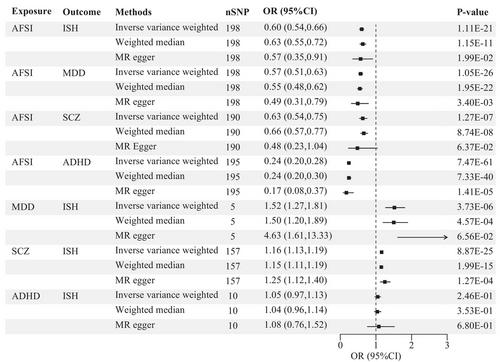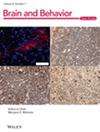Investigating the Mediating Role of Mental Disorders in the Relationship Between Early Sexual Intercourse and Intentional Self-Harm: A Two-Step and Multivariable Mendelian Randomization Study
Abstract
Background
Epidemiological studies have established an association between early sexual intercourse and intentional self-harm. However, the causal mechanisms, particularly the role of mental health disorders, remain elusive.
Methods
In this Mendelian randomization (MR) study, we leveraged genome-wide association study data from multiple sources. Age at first sexual intercourse (AFSI) statistics were derived from the UK Biobank, encompassing up to 406,457 participants of European ancestry. Intentional self-harm (ISH) genome-wide association study (GWAS) data were obtained from the FinnGen Biobank, comprising 218,792 European-descent individuals. We investigated the causal relationship between AFSI and ISH and quantified the mediating effects of major depressive disorder (MDD; n = 173,005), schizophrenia (SCZ; n = 127,906), and attention deficit hyperactivity disorder (ADHD; n = 55,374). Both two-step and multivariable MR approaches were employed to estimate the mediation effects of these psychiatric disorders.
Results
The F-statistics of all retained SNPs are over 10, indicating our study has no weak instrument bias. The odds ratio (OR) indicated that early sexual intercourse substantially increases the risk of ISH (IVW: OR = 0.60, 95% CI = 0.54–0.66, p < 0.05). Specifically, MDD was found to mediate 31% of this effect and SCZ 12%, collectively accounting for 46% of the total effect.
Conclusions
Early sexual intercourse is associated with an increased risk of intentional self-harm, potentially mediated by psychiatric disorders. These findings emphasize the need for mental health screening and early intervention in adolescents with early sexual debuts.


 求助内容:
求助内容: 应助结果提醒方式:
应助结果提醒方式:


